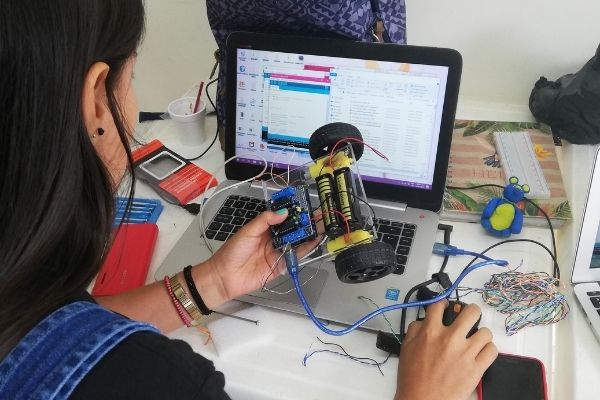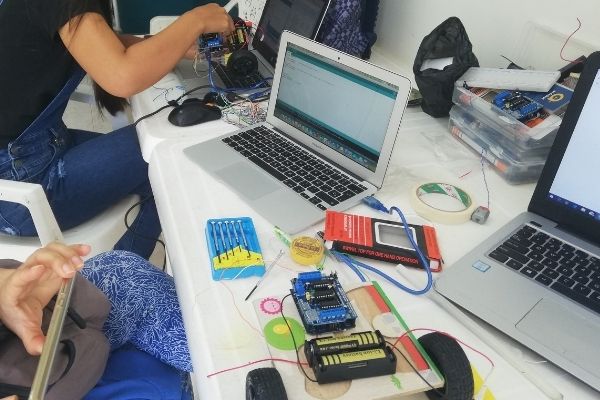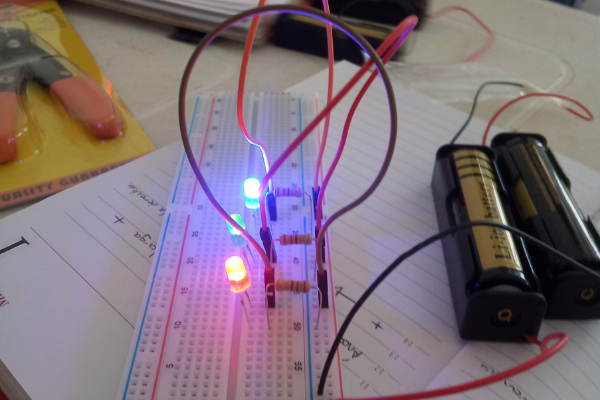Project Execution: 2020- Currently
Location: Medellín, Colombia
Beneficiaries:
Young people between 14 and 18 years.
Project Execution: 2020- Currently
Location: Medellín, Colombia
Beneficiaries:
Young people between 14 and 18 years.
In the Innovation Laboratories we develop a model of training and creative training for the generation of proposals that respond to problems and needs of participants, motivating the use of ICT tools as a means to impact from social innovation.
Participants acquire principles of electronics, robotics, programming and Arduino (open source hardware and software), as well as IT skills for the development of solutions to social, economic, health and environmental problems, identified in their own contexts, involving the strengthening of soft skills for personal and professional development.

The laboratories are developed in 5 phases

General
To develop a training model and creative training for the generation of proposals that respond to problems and needs of the participants in the Department of Antioquia, motivating the use of ICT tools as means to impact from social innovation.
Specific

In 2020 we trained 23 young people – 17 men and 6 women – during the pandemic and in a virtual way, ensuring that each of the beneficiaries had a robotics kit so that they could develop projects with which they could provide a solution to problems of its environment.
Get to know some of the projects carried out: